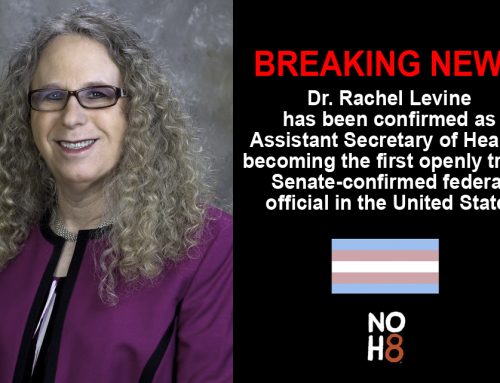A Third of Fortune 500 Companies Now Cover Transgender Health Care
(Source: Yahoo/Getty Images)
The number of Fortune 500 companies willing pay for sex reassignment surgeries and other transgender-related healthcare has gone from zero in 2002 to 169 this year, according to a new report from the Human Rights Campaign.
The report, which ranks corporations on their treatment of gay, lesbian, bisexual and trans employees, also found that more than half of corporations with more than 500 employees that participated in the survey now cover the procedures. That’s 418 firms.
Some of the biggest names in corporate America are among those who have signed up to cover the procedures, at up to $75,000 per employee. Facebook Inc., Visa, Starbucks Corp., CVS Health Corp. and Anheuser-Busch Companies Inc. are just some of the firms that decided this year to begin covering the procedures for their workers for the first time.
“The jump in terms of employers adopting transgender benefits has been the most dramatic of any single aspect of the Corporate Equality Index in its entire history,” said Deena Fidas, the director of the Human Rights Campaign’s Workplace Equality Program, which has been producing the report for more than a decade.
Ratings in the Corporate Equality Index are derived from a look at five major areas, including: recruiting efforts, whether firms have explicit gender identity and sexual orientation anti-discrimination protections, and if they have extended health care and other benefits to same-sex partners.
While the vast majority of Fortune 500 companies now have nondiscrimination policies that explicitly protect employees from being fired for their gender identity or orientation, companies have moved much more slowly when it comes to covering transgender health care.

(Yahoo News/Getty)
“Across a lot of the businesses, very well-meaning people were quite anxious about these benefits,” Fidas said. “They wondered if there’d be murmurings among the workforce.”
It took many “uphill conversations” to convince some big employers that transition-related health care is not elective or cosmetic for transgender people, Fidas said.
Such health care can include: sex reassignment surgery, breast augmentation or mastectomy, hormone therapy, short-term leave and counseling.
The vast majority of health insurance plans explicitly ban the coverage of any transition-related care, grouping those procedures with elective cosmetic surgery.
This has slowly begun to change as mainstream medical organizations, including the American Medical Association, have announced new positions in recent years stating that sex reassignment surgery is not elective for some transgender people. (The American Medical Association said in 2008 that “gender dysphoria” is a “serious medical condition” that can result in “suicidality and death” without proper treatment.)
“Transition-related care is absolutely essential to trans people who are seeking to be themselves,” said Lisa Mottet, deputy executive director of the National Center for Transgender Equality. “In many cases, this care is actually life-saving.”
Not every transgender person wants surgery, but having it as an option is crucial, she said.
Some state officials are also beginning to move in that direction. Eight states have banned insurance companies from explicitly excluding surgeries for transgender people, and a handful of states even offer coverage for the procedures through Medicaid.
The Human Rights Campaign says that businesses that have decided to provide the care have not had to increase insurance premiums. The cost has been “so small it’s not quantifiable,” Fidas said. That might be in part because so few people in the country are transgender. The Williams Institute at UCLA estimates the transgender population at one third of one percent.
“There’s not one number that will tell you how many people are transgender in corporate America,” Fidas said. “We’re on the brink of seeing more people being able to be visible in their jobs and to be able to be more open about the fact that they’re transgender.”
Nancy Kelly, the director of compensation and benefits at the Federal Reserve Bank of Atlanta, said larger companies can no longer remain competitive if they are not offering transgender benefits. The bank decided this year to begin to cover transition-related health care services as of Jan 1. Kelly said she is not sure if any of the bank’s 1,200 employees are transgender or will want to access the new benefits when they become available. The Federal Reserve banks of Boston, Cleveland and Richmond also decided to offer the benefits this year.
“It was not a particular employee request, it was more about diversity and inclusion and being a competitive employer,” Kelly said.
A CVS spokeswoman said the company changed its health coverage to include sex reassignment surgery to “provide all colleagues with meaningful choices regarding their health care.”
(Source: Liz Goodwin and posted on Yahoo News)










 Any misuse, unauthorised use or copyright infringement of these images whatsoever will be met by criminal and civil litigations WITHOUT FAIL. Comments and problems to Webmaster.
Any misuse, unauthorised use or copyright infringement of these images whatsoever will be met by criminal and civil litigations WITHOUT FAIL. Comments and problems to Webmaster.